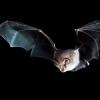Tuberculosis and other life-threatening microbial diseases could be more effectively tackled with future drugs.

The claim comes in new research into an old antibiotic by the Francis Crick Institute and the University of Warwick.
Led by Group Leader at the Crick, Luiz Pedro Carvalho, and Professor David Roper at the university, the results have been published in Nature Communications.
Their work reveals a deeper understanding of how the antibiotic D-cycloserineuniquely works at a molecular level. This could lead to more effective future antibiotics, which are desperately needed to fight increasingly drug-resistant and deadly bacteria.
D-cycloserine is an old antibiotic drug that is effective against many microbial diseases, such as tuberculosis, but is often used as a second line treatment, because of some adverse side-effects.
The researchers have discovered that it acts chemically in very different ways on multiple bacterial targets – possibly the only antibiotic in the world to do so.
Picture credit | iStock




